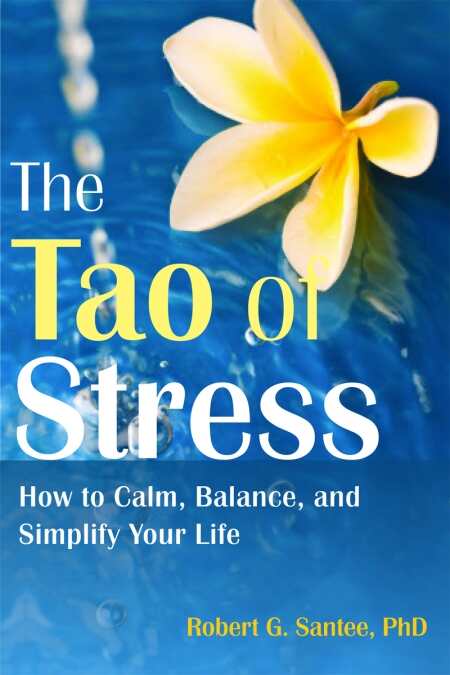The Tao of Stress
How to Calm, Balance, and Simplify Your Life
Our bodies, science tells us, experience a number of physical and psychological changes when under stress: an increase in heart rate and blood pressure; rapid, shallow breathing; tense muscles; fats released into the bloodstream along with hormones like adrenaline, noradrenaline, and cortisol; and the humoral arm of our immune system ceases working, among other reactions. These responses have been hardwired since prehistoric days when fight-or-flight responses kept us from a saber-toothed demise.
Ordinarily, these intense changes occur and then dissipate under normal stress, but when we experience ongoing stressful episodes, our bodies find it difficult to return to base level.
Ancient texts reveal that Taoists have been developing stress relieving techniques for more than 2,200 years. Taoism’s focus on maintaining a sense of harmony in a constantly changing world points to the importance of Robert Santee’s The Tao of Stress (New Harbinger Publications, 9781608827800), in which he explains three interrelated components for the removal of chronic stress: Simplifying Life, Reducing Desires, and Stilling and Emptying the Mind.
“As this Taoist path incorporates both a mental and physical approach, and it addresses mind, body and environment, it is holistic in nature. To remove chronic stress you need to incorporate both approaches in your life.”
To satisfy the mental aspect, Santee encourages readers to consciously bring a specific problem into awareness, followed by physical activities and practices to train your attention, concentration, and breathing, while learning proper body alignment and relaxation techniques. The goal is to root and center oneself, allowing qi (vital energy and breath) to freely circulate throughout the body.
Reviewed by
Matt Sutherland
Disclosure: This article is not an endorsement, but a review. The publisher of this book provided free copies of the book to have their book reviewed by a professional reviewer. No fee was paid by the publisher for this review. Foreword Reviews only recommends books that we love. Foreword Magazine, Inc. is disclosing this in accordance with the Federal Trade Commission’s 16 CFR, Part 255.

